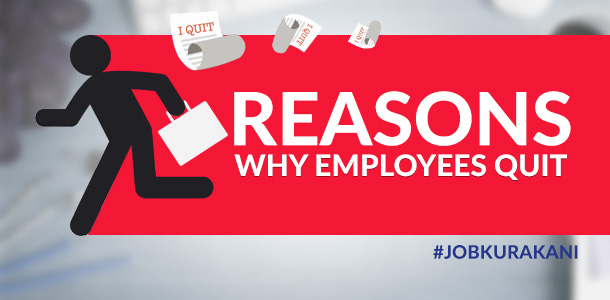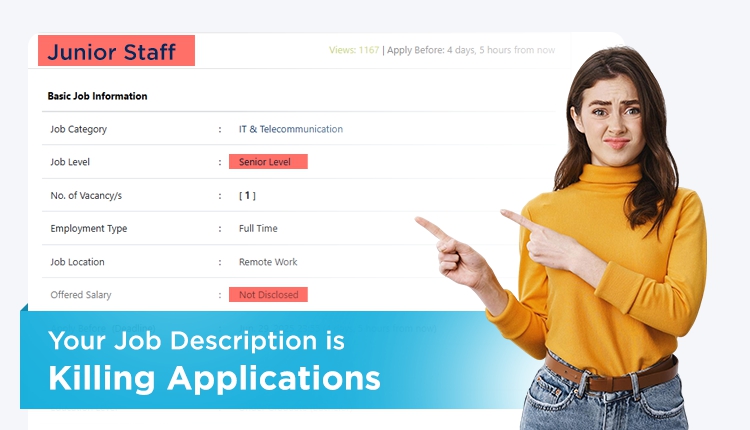Losing best employees is one of the greatest losses any company can face. This calls for a whole new process of finding a new employee and training him/her. The situation is even worse in case of high-level jobs requiring specific skills.
Employees leave companies due to various reasons, of which some are known are some are very difficult to figure out. So, what can be the possible factors causing good employees to seek their fortunes elsewhere? For many people, quitting has everything to do with the job itself. From low salaries to incompetent bosses, here are seven reasons why good employees leave their jobs.
They’re not getting paid enough
People leave when they feel they are not paid enough compared to others in the same industry and same job position. Needs of every individuals varies and same is the case is why people some. Some employees might value pay but others may value challenging tasks, work environment etc.
Relationship with the supervisor
This is another major reason why employees leave. Employees don’t need to be friends with their supervisor but they need to have a relationship. The supervisor provides direction and feedback, spends time in one-to-one meetings, and connects the employee to the larger organization. The relationship should be such that he/she can share his ideas, grievances, etc. freely with his/her supervisor.
Having a boss whom they find uncomfortable to deal with is another reason why employees quit their job.
Relationship with Coworkers
Second only to an employee’s manager, the coworkers with whom he sits, interacts, and serves with on teams, are critical components of an employee’s work environment. If having a friendly and interactive relations with the coworkers makes the employee stay in the organization, not having the same makes them leave.
Opportunities to Use Skills & Abilities
When employees can utilize & demonstrate their significant skills and abilities on the job, they feel a sense pride, accomplishment, and self-confidence. This will also allow them to develop and grow their skills.
If they’re not able to do this in your jobs, they’ll find one where they can. If an employee can’t see a path to continued growth in their current organization, they are likely to look elsewhere for a career development or promotion opportunity.
Overall Company Culture
The overall culture of the company does make a difference for employees. Does your organization appreciate employees, treat them with respect, and provide compensation, benefits, and perks that demonstrate respect and caring?
Employees appreciate a workplace in which communication is transparent, management is accessible, executives are approachable and respected, and direction is clear and understood. Your overall culture keeps employees — or turns them away.
Management’s Recognition of Employee Job Performance
Lack of recognition can affect employee retention, but it’s probably not the deciding factor in an employee's decision to leave your organization. Provide a lot of genuine appreciation and recognition as icing on the cake for employee retention.
But, pay attention to the more significant factors, the cake, if you wish to retain your best employees. Make recognition the way you live in your organization to keep your best talent.
Organization’s financial stability
Financial instabilities like lack of sales, layoffs or reduced work hours, salary freezes, successful competitors highlighted in the news, bad press, employee turnover, mergers and acquiring companies, all lead to an employee’s feeling of instability and a lack of trust.
Employees who are worried tend to leave. Make every change and potential change transparent. Let them know how the business is doing at all times and what the organization’s plans are for staying on track or recovering in the future.
Paying attention to these seven factors can help in reducing turnover and retain your most wanted employees. Why not put the effort necessary to retain the employees that you have already painfully recruited and hired rather than hiring a new one?

















